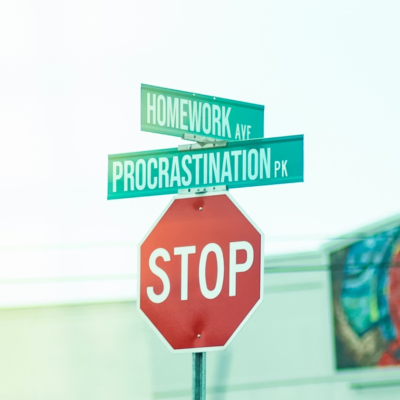Is Boston’s new exam school admissions policy causing its downfall?
The elite and esteemed Boston exam schools have undergone many extreme changes in their admissions policies over the past few years, creating increasing amounts of controversy between parents, students, and teachers. The admissions policies have been revised in the past years to promote diversity in the student body and account for economic injustices in our city. While this can seem positive, there has been a lot of pushback and negative perception of how it has changed the exam schools as a whole. As a student at the Boston Latin School (BLS), I have experienced and seen firsthand how these policies have changed my school community.
Three years ago, when I was applying to these schools, they underwent their first change in admissions policies. It shifted away from the previous policy of 50% grades and 50% from the ISEE. The ISEE was a standardized test that historically favored students whose families paid for extensive test prep, and it in no way reflected what the students were learning in school. This resulted in white wealthy students scoring a lot higher, and therefore getting accepted in higher numbers to the exam schools. This made the exam schools (which include Boston Latin School, Boston Latin Academy, and the John O’Bryant School of Mathematics and Science) a lot less diverse. They in no way reflected the diversity of Boston as a whole, instead reflecting Boston’s most privileged. After years of discussion and debate, changes were made to these policies.
The most recent policy accounts for 70% of grades and 30% from a new test, The Map test. This new system accounted more for grades and changed the test to one that should better reflect the teaching standards in Boston. Applicants were also placed in a tiered system that awarded extra points based on their neighborhood, school, and family’s socioeconomic status.
After these new changes, the exam schools have seen a significant increase in economically disadvantaged students, black students, Latinx students, as well as students with disabilities, and students who are English learners. Due to the increase in students of other racial backgrounds, the exam schools have seen a decrease in new white students. In addition, there has been an increase in students from the BPS and a decrease in students from private schools.
Personally, I see these changes as beneficial and necessary, but the response to these changes have been mixed. There has been a lot of concern around the changed policy, especially from families who were not on the benefiting end. Following the decision to change the policy there was a lawsuit filed by white and Asian parents that accused BPS of creating policies that were biased against their kids. This was a very hard topic because, on the one hand, the previous policy was unjust and unfair. But you also must understand where these parents were coming from. Other Bostonians were looking at the large-scale implications and the injustices that these new policies would correct. But the parents had a line of focus that was centered around their child and their child’s education, which they saw as being taken away. While these parents lost the lawsuit, the doubt about the impacts of this change remained.
One main concern about this change was that it would cause a decrease in standards for the exam schools, as many people’s main focus was on maintaining the eliteness of the schools. When the first wave of students entered the exam schools, it did not go entirely according to plan. At BLS especially, many rumors circled around the new seventh-grade class of 2027. Lists circulating social media about all the shortcomings and failures the new students had supposedly gotten into. The new cohort became infamous around BLS as having gone rogue.
All of this caused the beginning of a new narrative about exam schools. A narrative where their academic standards were dropping as well as the school’s ability to keep its students in line.
Between the year before the admissions change and after, there was an extreme decline in applicants, with half the applicants this past year than the year before. BPS contributed to the removal of the default exam school rankings. But I believe that this change has been impacted by these concerns that were emerging about exam schools.
While I can’t speak for the exam schools as a whole, I can speak to my personal experience as a student at BLS. In my opinion, the admissions policy changes, while not perfect, are a positive change for the better. I love the fact that my school has kids from all different backgrounds and from all over Boston. I believe that diversity and engaging with other points of view is an essential and beautiful part of any education. Despite the doubt that has surrounded our grades, I have not experienced a drop in standards concerning education expectations and rigor.
As for the idea that the new seventh-grade class was wild or out of control, I think that when entering any new environment, there will be a period of growth and melding to the culture around you. The new seventh graders were no exception, but their time of growth was perceived as a reflection of the change in policy when in truth, many other factors played into this. For example, last year was the first full year back in-person for the exam schools, after over a year of online learning which left many students behind. It was the first time kids were back together and interacting with each other in over a year, and naturally, it was not without some hiccups.
It should also be noted that there is a culture in most exam schools that pokes fun at the new, younger students coming in. This was exacerbated by the concern about the changed admissions policy and has in many ways subsided over time.
In addition, the perception that academic eliteness is declining is not entirely true. It’s important to understand that while the student body is changing in some ways, the teachers and the opportunities that the exam schools have in place are not different. While discussing this topic with some of my current teachers (who have seen kids before and after the new admissions policy), they unanimously agree that their teaching methodology and standards have not changed since the policy change. “In a way I keep it doesn’t affect our job. My job is to teach whoever’s in front,” said Molly MacDonald, an eighth-grade teacher at BLS. After and throughout all of these changes, no matter what students have come through the door, teachers have continued to educate and support them in the best ways they know how.
Even though there are these extra points given to students of lower socioeconomic status, they still have to meet this basic academic bar. If we look at the Massachusetts Comprehensive Assessment System (MCAS) for BLS, there is no significant decrease in ability from one year to the next. The difference between my grade and the grade before us was less than 5%, showing no real change in academic performance. So the idea that the exam schools, specifically BLS, have descended academically is not accurate or based on solid factual proof.
While the new policies still need improvement, this is a step in the right direction. I am so proud to be part of a new cohort of students who are not only diverse but avid and hardworking learners. The BPS is not without its flaws, but this first change can pave the way for more beneficial changes to come. While there is still a lot of concern around these policies, I believe that they are bringing instrumental and valuable changes to our school systems.










